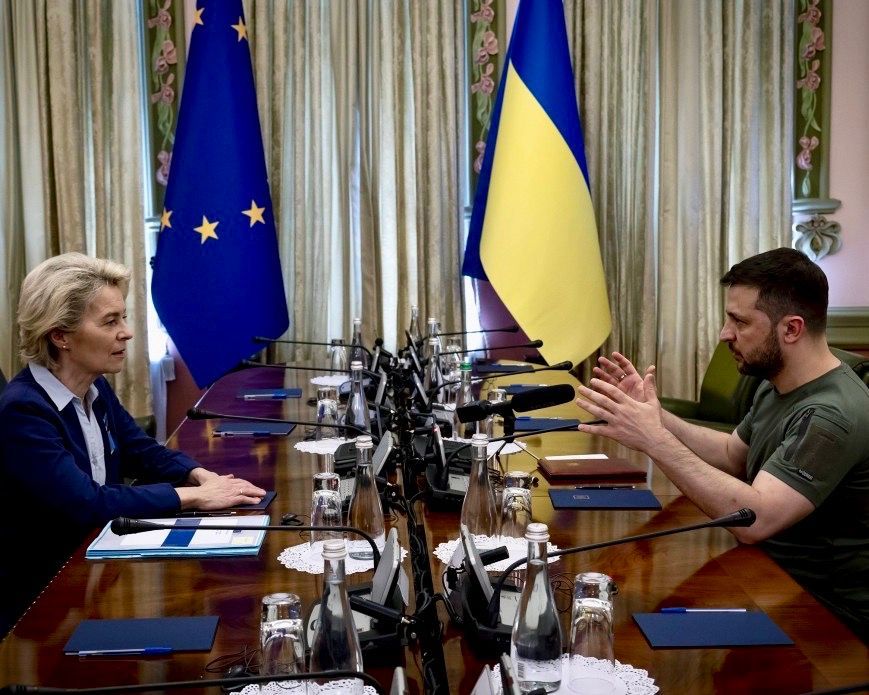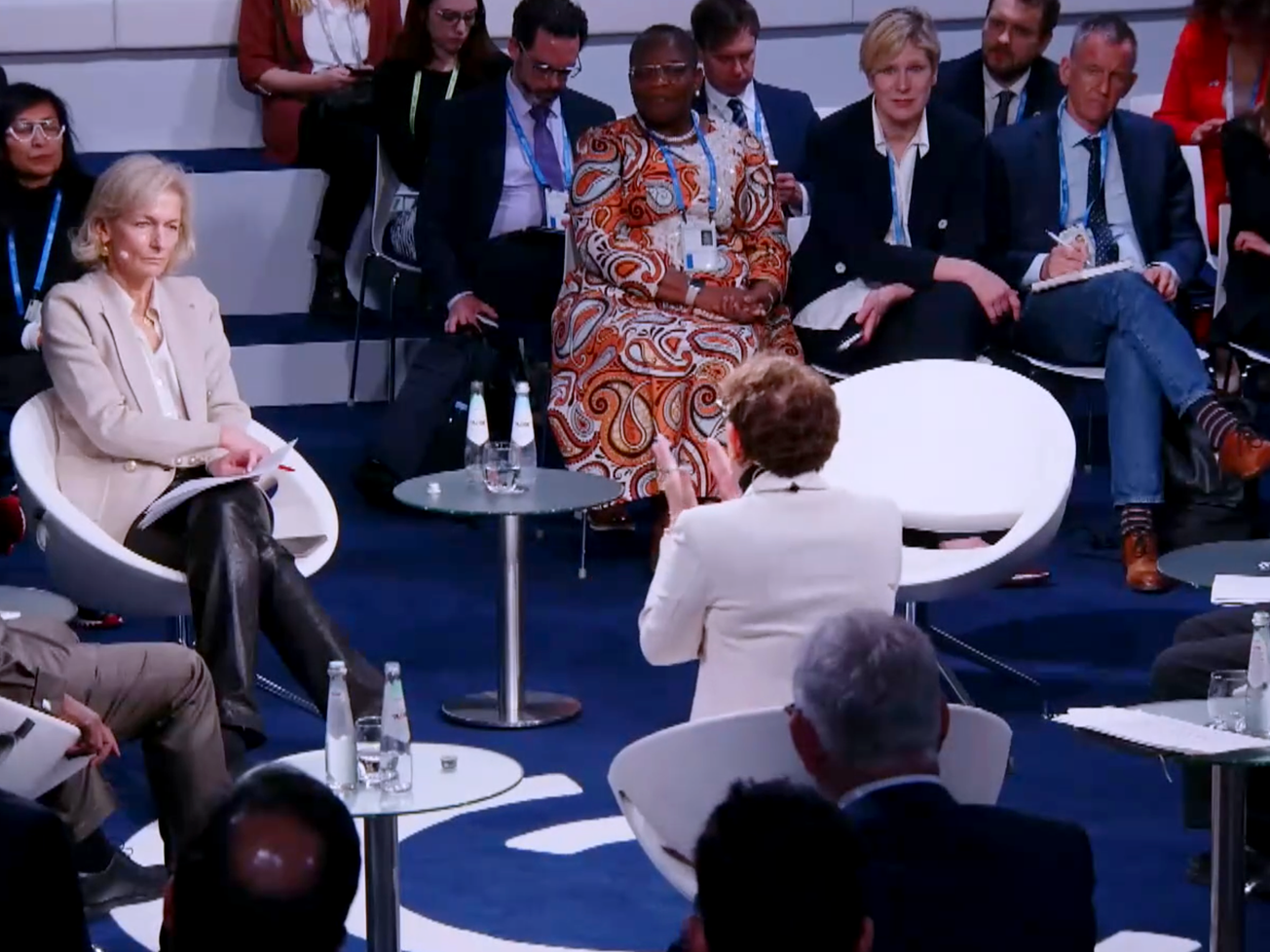BRUSSELS (AN) — European Union leaders approved Ukraine's request to become a formal candidate in the 27-nation bloc, putting the war-torn nation invaded by Russia on an accelerated path towards membership.
In an unusually quick decision, leaders unanimously decided at a European Council summit in Brussels to give Ukraine "candidate status," which is the first step in a process that could take years to complete. The decision also sends a strong message to Moscow.
"It's a unique and historical moment in relations," Ukraine's President Volodymyr Zelenskyy said while commending E.U. leaders for their decision. "Ukraine’s future is within the E.U."
Last week, the European Commission recommended Georgia, Moldova, and Ukraine each be "given the perspective to become a member" of the European Union, assuming they keep improving in certain governance issues.
The commission provided its opinions about the three nations' potential bids for E.U. membership based on three sets of criteria about the strength of their democracies, economies, and abilities to fulfill the obligations of all 27 E.U. member nations. Though all three nations should be "given the perspective to become a member" of the E.U. someday, the commission advised, not all three are considered ready to become official candidates.
Moldova and Ukraine should each be "granted candidate status on the understanding that steps are taken in a number of areas," it said. Georgia, however, "should be granted candidate status once a number of priorities have been addressed."
The decision to recommend formal candidate status both for Ukraine and neighboring Moldova comes at a critical time when many E.U. members are strongly backing Ukraine in its war to repel Russia's invasion — but not all back Ukraine as an E.U. member. A final decision requires unanimous support of E.U. member governments.
The three applications for E.U. membership and the commission's opinions about them are scheduled to be taken up at next week's meeting of the European Council, which represents E.U. heads of state and government.
Russia's full-scale invasion of Ukraine on February 24 tipped the scales with the three countries. Ukraine presented its application for E.U. membership accession less than a week later, as its capital, Kyiv, was under threat of being captured. On March 3, Georgia — which fought a war with neighboring Russia in 2008 — and Moldova presented their E.U. membership applications. Four days later, the European Council invited the commission to offer its opinions.
All three countries "share the strong and legitimate aspiration of joining the European Union" and, in return, "we are sending them a clear signal of support in their aspirations, even as they face challenging circumstances," said European Commission President Ursula von der Leyen.
"And we do so standing firm on our European values and standards, setting out the path they need to follow in order to join the E.U.," she said. "We are confirming that they belong, in due time, in the European Union. The next steps are now in the hands of our member states.”
Today is a good day for Europe.
— Ursula von der Leyen (@vonderleyen) June 23, 2022
Congratulations to President @ZelenskyyUA President @Sandumaiamd and Prime Minister @GharibashviliGe
Your countries are part of our European family.
And today’s historic decision by Leaders confirms that. pic.twitter.com/lAkv8Bq5fs
Staying on the path
Georgia built a foundation for democracy, rule of law, human rights, and respect for and protection of minorities "even if recent developments have undermined the country's progress," the commission said.
"It has achieved a good degree of macroeconomic stability," it said, "and has a sound record of economic policy and a favourable business environment, but further reforms are needed to improve the functioning of its market economy; and overall, Georgia has established a solid basis for further alignment with the E.U. acquis" — the rights and obligations of all E.U. members.
Moldova also has a solid foundation "to reach the stability of institutions guaranteeing democracy, the rule of law, human rights and respect for and protection of minorities," the commission said.
"Macroeconomic policies have been reasonably sound," it said, "and progress has been made in strengthening the financial sector and business environment but key economic reforms remain to be undertaken; the country has established a solid basis to further alignment with the E.U. acquis."
And Ukraine "is well advanced in reaching the stability of institutions guaranteeing democracy, the rule of law, human rights and respect for and protection of minorities; has continued its strong macro-economic record, demonstrating a noteworthy resilience with macroeconomic and financial stability, while needing to continue ambitious structural economic reforms; and has gradually approximated to substantial elements of the EU acquis in many areas," the commission said.
Olivér Várhelyi, the European commissioner for neighborhood and enlargement, said the commisssion worked hard to deliver its opinions "in record time" and now expects member nations to decide on the next steps "in the coming days." But he emphasized that the three countries "should already start working to deliver on their side on the key reforms" that are recommended.
"This is crucial in order for Ukraine, Moldova and Georgia to move ahead on their E.U. path," he said.







